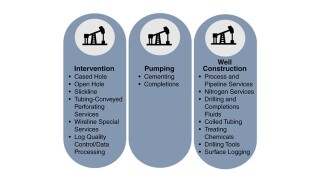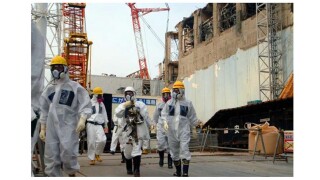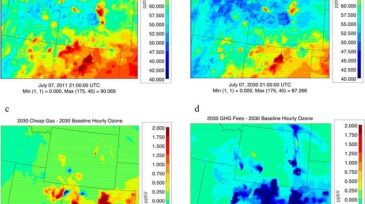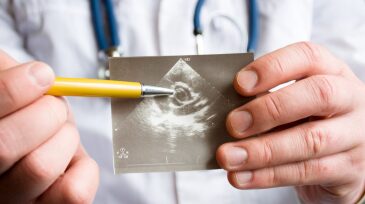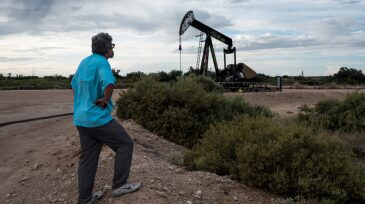Health
This paper examines how real-time monitoring can improve both incident prevention and emergency response in the oil and gas industry. Drawing from real-world examples and case studies, it provides practical strategies for implementing this technology effectively.
This paper describes a risk-based self-verification process conducted through a bespoke software application.
This paper discusses and demonstrates the limitations of quantitative risk assessment (QRA) with respect to the usefulness of the concept in managing day-to-day and emerging risks as well as the effect of change.
-
Research by Drexel University and the University of Colorado at Boulder suggests that imposing fees on energy producers that emit greenhouse gas could improve the health and financial well-being of the Rocky Mountain region.
-
Mothers living near more-intense oil and gas development activity have a 40–70% higher chance of having children with congenital heart defects compared with those living in areas of less-intense activity, according to a new study.
-
A new package of regulations governing workers’ safety in the oil and gas sector in Guyana is being crafted, said the country's occupational safety and health consultant at the Ministry of Social Protection, Gwyneth King.
-
The Petroleum Authority of Uganda, together with the Ministry of Health and the Uganda Health Federation, held a one-day conference to discuss health investment opportunities in the oil and the gas sector while highlighting the standards expected.
-
Local officials are calling on Massachusetts Gov. Charlie Baker to require studies of health and safety risks before approving new natural-gas infrastructure. In separate letters, boards of health representing 100 communities raise concerns about the state's reliance on natural gas as a fuel source.
-
About a third of claims for medical or sickness benefits are related to mental health issues, often resulting from stress. And with the oil sector downturn, mental health claims have increased, a director of an Aberdeen-based financial advisory firm said.
-
Pennsylvania Gov. Tom Wolf has asked the state Department of Health to determine how best to spur additional academic and science-based studies of the potential public health effects of shale gas development in the state.
-
Although OSHA does not have a specific standard that covers working in hot environments, the Occupational Safety and Health Act requires places of employment that are "free from recognizable hazards that are causing or likely to cause death or serious harm." This includes heat-related hazards.
-
Obstetrics are disappearing from rural counties across America, but not in the oil patch. In McKenzie County, North Dakota, Whiting Oil and Gas has donated to build a new wing of the McKenzie County Health Care Center devoted to labor and delivery.
-
Carlsbad, New Mexico, residents are experiencing health effects, but the science behind their woes lags behind the pace of drilling.


